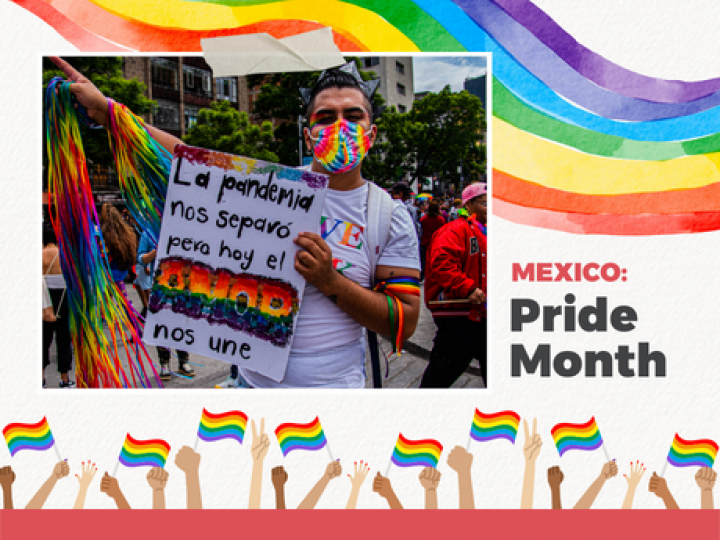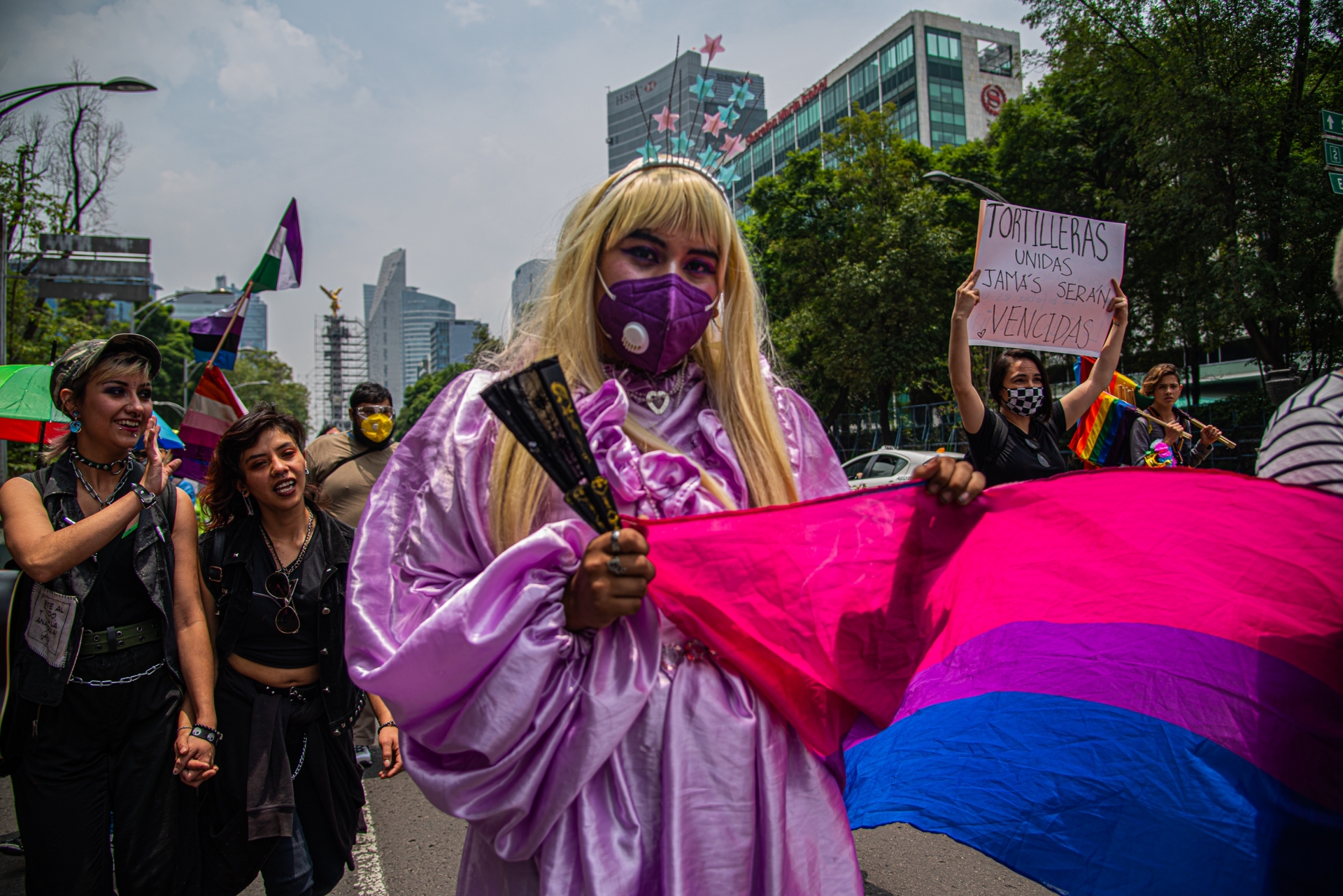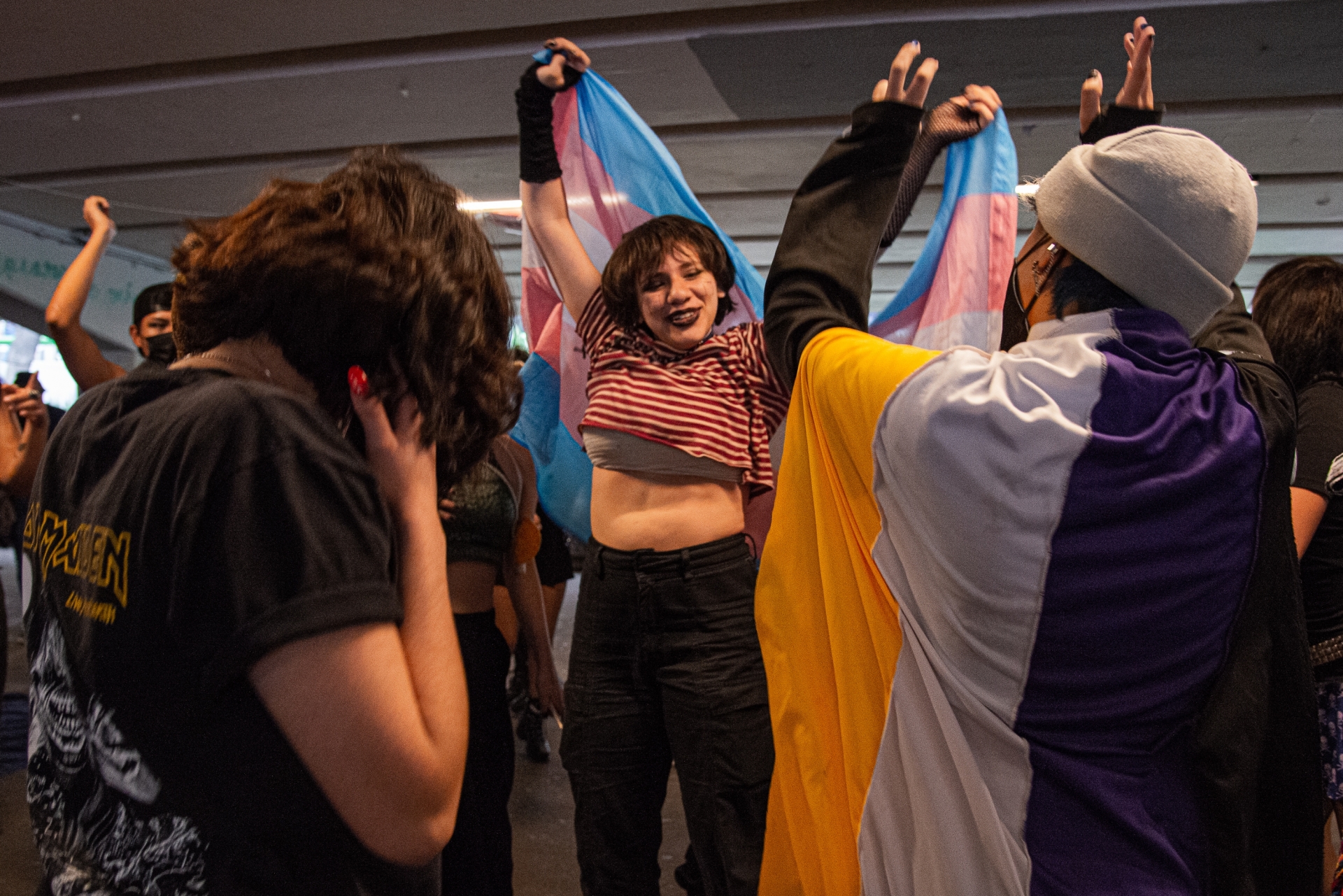Since 2003, a federal law banned discrimination against LGBTQIA+ persons. Mexico City passed a local law that banned conversion therapy in 2020. More than half of Mexico’s 32 states recognize same sex marriage, and the nation’s Supreme Court has ruled that trans people have a legal right to change their gender identity on official documents. Then why are hate crimes and discriminatory practices still widespread?
Pride Month in Mexico: A fight of resistance


"The heteronormative structure that we inhabit continues to expose in an accentuated way all the people who do not conform to the dominant norms and roles, triggering violence from both the State and individuals." Angelica Díaz, Centro de Derechos Humanos Fray Francisco de Vitoria
Angelica Díaz works for one of our grantee partners in Mexico, The Human Rights Center Fray Francisco de Vitoria (CDH Vitoria). They promote the rights of LGBTQIA+ persons in the country as part of their training programs including providing important objections against patriarchal and heteronormative violence which still exist in society. Their work and that of many other grassroots organisations are essential to raise awareness and protect the rights of the LGBTQIA+ community.
Mexico is still one of the most dangerous countries in the region for LGBTQIA+ persons. In 2021, 78 people were killed because of their sexual orientations, gender identity and expression according to a report “Violent deaths of LGBT+ people in Mexico” published by local human rights organisations. Trans women were reportedly targeted the most, with 55 transfemicides. Mexico has ranked as one of the most dangerous places for trans people in the world for the past years. Widespread impunity still exists for perpetrators of hate crimes. Children and adolescents have the right to decide their gender identity and expression and sexual orientation, to avoid discrimination in public and private spaces

Angelica Díaz is clear on the fact that Pride Month is still key to celebrate resistance and provide visibility to encourage other people not to feel alone and isolated.
"Despite the great legal advances in recent years, there are many other rights that have not yet been claimed in the country. Including the right to live free from all discrimination and safeguarding people from discriminatory practices such as gay conversion therapies." Angelica Díaz
For years, Pride Month and the International Women’s Day demonstrations and social protests has grown stronger. Millions of LGBTQIA+ persons and their allies have taken the streets reclaiming their right to live in peace and demanding more legal actions against discriminatory practices and to provide justice for all. The NHRF continues to stand in solidarity and is proud to support organisations like CDH Vitoria. The fight for human rights for all continues.
